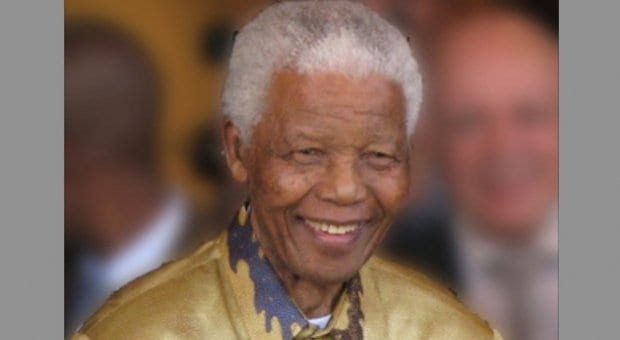Leadership, both obvious and subtle, surged to the forefront as 2013 ticked down.
At least twice, US President Barack Obama repeated his assertion that we will never again see someone of Nelson Mandela’s like. Glorified in such terms, Mandela, who died Dec 5 at 95, is positioned out of our reach, an impossibly hard act to follow.
But Gary Younge, reporting for The Guardian, recorded an important observation made by Catholic priest Father Sebastian Rossouw during one of the countless tributes and memorials — that everyone has a Mandela within, somewhere. Rossouw was probably referring to the nobler parts of our being, where empathy, forgiveness and a passion for justice abide.
Even as the world places Mandela on a pedestal, with soaring labels of “icon,” “hero” and “giant of history,” his failings and miscalculations and — more so — his understanding of his own fallibility allow for a more down-to-earth reading of the man. The Mandela media coverage reminded me of the kind of worship that many of the first independence-era leaders of post-colonial countries like my own enjoyed during their often too-long tenures in office. Their deaths also saw a surplus of father-of-the-nation invocations and too much emphasis on misgivings about what will happen now that “the one and only” is gone.
As if the rest of us are capable only of following, complaining and critiquing. As if our human rights battles and other collective interests rely only on the actions and words of a once-in-a-lifetime messiah rather than the ongoing work of many.
In his 2009 book Mandela’s Way, Time magazine editor Richard Stengel says the late anti-apartheid activist understood that the “unknown and unremembered acts of courage” of thousands “allowed him to demonstrate his.” We don’t have to look very hard for examples of individual and cooperative leadership discomfiting established political and economic power brokers and, eventually, forcing change.
As much as Pope Francis I is still mired in wearisome dogma about women’s roles in the Church and the sanctity of heterosexual marriage, he has taken an unequivocal stand against the excesses of capitalism. “How can it be,” he wonders, “that it is not a news item when an elderly homeless person dies of exposure, but it is news when the stock market loses two points?”
His swipe at trickle-down economics got the attention of the Rush Limbaugh rightwing roadshow, which deemed Francis’s perspective as “pure Marxism.” Francis, who has opted personally for more muted vestments and less showy papal lodgings, countered, “In my life I have known many Marxists who are good people, so I don’t feel offended.”
Then there’s Edward Snowden’s brand of leadership. Whether you agree with his whistleblower actions or not, he is paying for what he has unleashed — and continues to reveal about the surveillance we live under — in currency that approaches the ultimate price: an imprisoning statelessness and rootlessness whose endgame, like Mandela’s own incarceration, is fraught with uncertainty and danger and relies on patience and courage.
Meanwhile, the Indian Supreme Court’s decision to uphold a colonial-era law criminalizing gay sex emboldened Indians at home and in the diaspora to turn out in at least 36 cities for a global day of rage. Together, they challenged a ruling they consider archaic and regressive.
Russian President Vladimir Putin’s sanction of legalized homophobia falls woefully short of the high standards of leadership that Mandela set. But even as Putin demonstrates a willingness to fuel hostility for political gain, gay Russians and their allies at home and abroad are pushing back against their own version of Robben Island.
They don’t have a Nelson Mandela, but they certainly have his example — and their own Madiba within.
Natasha Barsotti is Xtra Vancouver’s staff reporter.


 Why you can trust Xtra
Why you can trust Xtra


